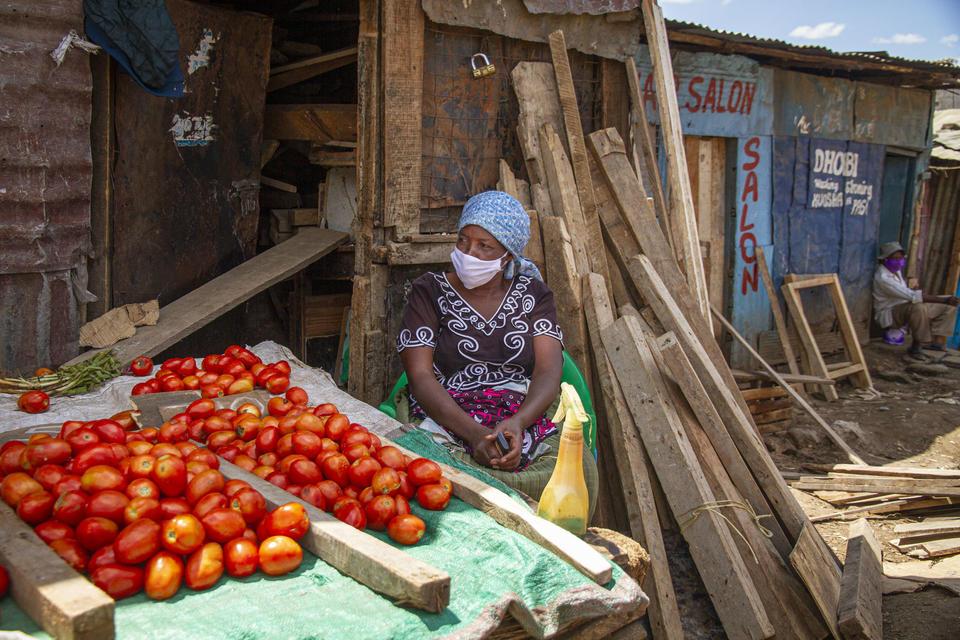Blog In her words: one woman fighting COVID-19 in Nairobi
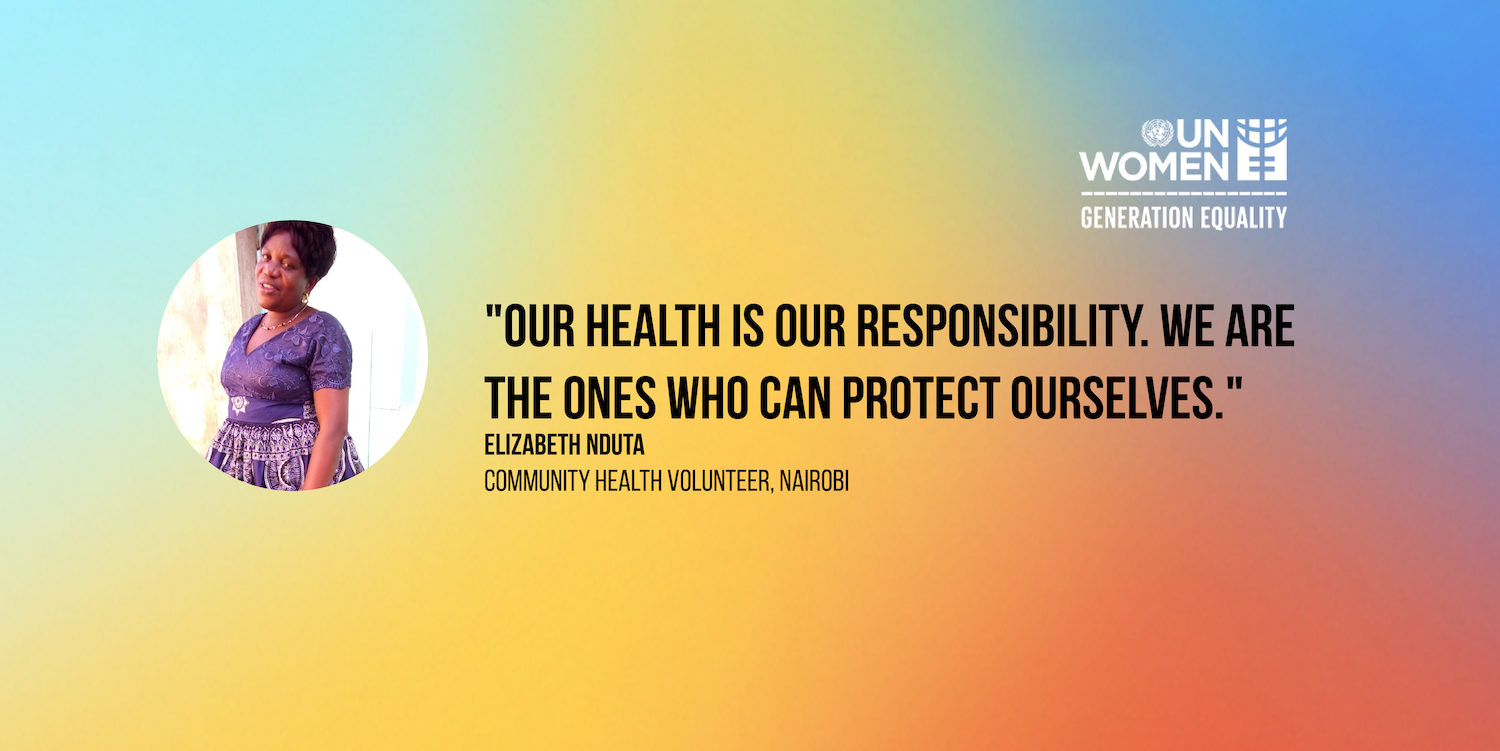
This International Women’s Day, we spoke with Elizabeth Nduta Njeri, a community health volunteer supporting the COVID response in Nairobi, to recognize ‘Women in leadership: achieving an equal future in a COVID-19 world’.
Approximately 2.5 million people live in densely packed urban areas across Nairobi, where they are vulnerable to both COVID-19 and its side effects. As the virus spread and curfews came into effect last spring, 90% of households in the slums of Kibera and Mathare reported food insecurity to Alliance researchers.
For Elizabeth Nduta, who hails from the semi-formal settlement of Riruta Satellite, this was her moment to emerge as a leader educating the community on how to prevent and manage the disease.
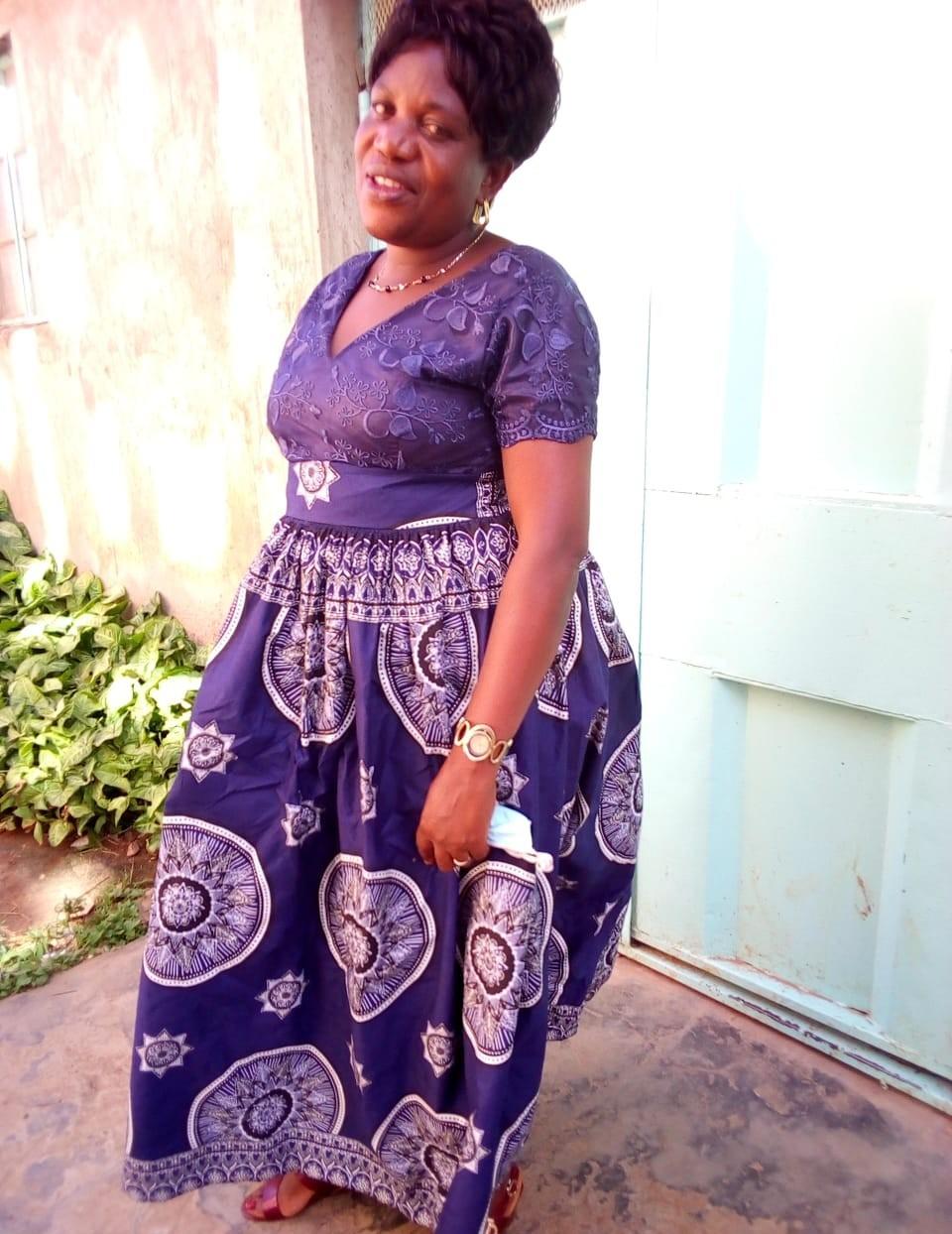
“As a Community Health Volunteer with the Ministry of Health in Kenya, I educate the community on existing health issues such as TB, HIV, and now COVID-19, through education programmes that focus on how to prevent and manage these diseases.”
Elizabeth Nduta
Ms. Nduta, who also runs a small tailoring business, witnessed the pandemic most adversely affecting those with small businesses, youths and young families. Curfew, restrictions and layoffs have reduced purchasing power within the community, consequently diminishing the income of business owners and resulting in many closures. Insecurity and petty crime in Riruta have risen as people struggle to provide for themselves and their families. Although Riruta has electricity, says Ms. Nduta, “Access to pipe borne water is a problem. Water does not flow from the existing taps, so we must buy our water from vendors.” With diminished income, residents have struggled to maintain necessary hygiene and sanitation.
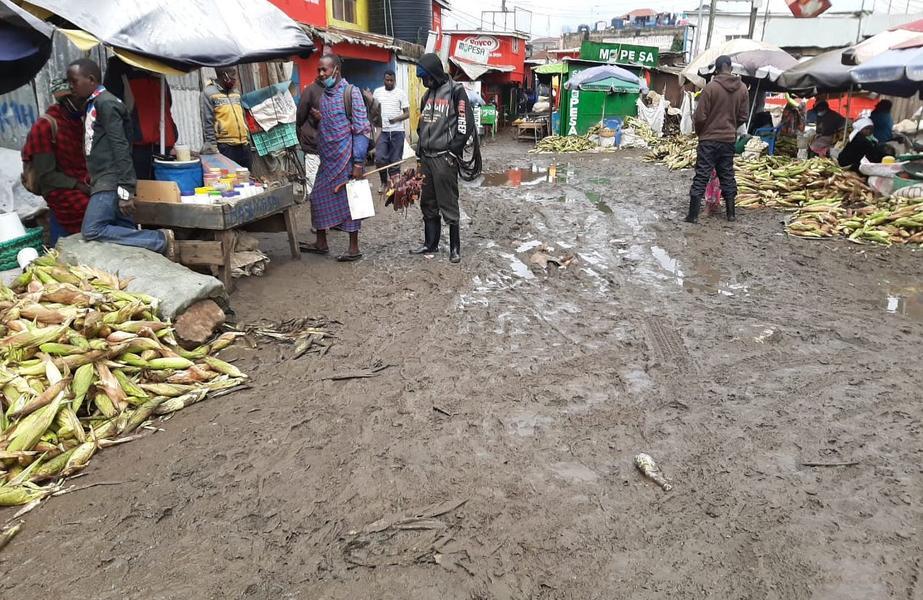
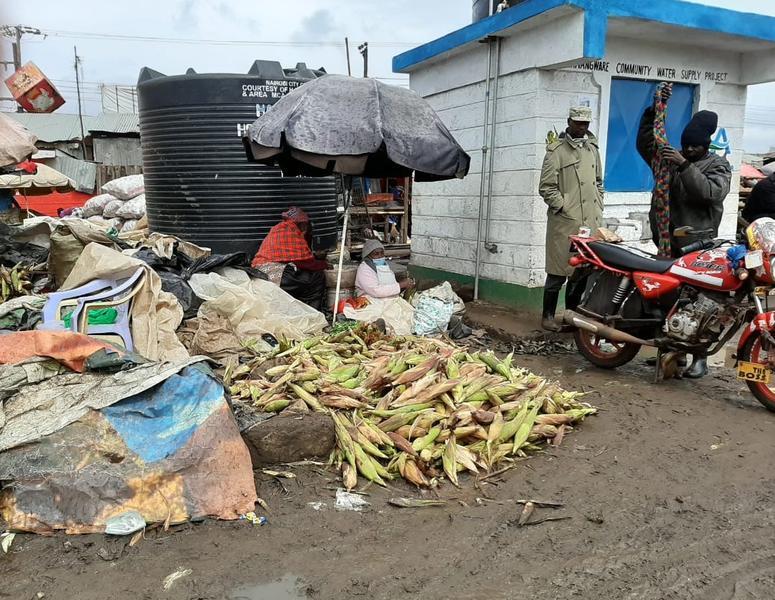
Riruta is a semi-formal settlement in Nairobi. Photos: Eileen Nchanji
To help Nairobi’s Metropolitan Services identify the most vulnerable and guarantee that they are eligible to receive care, volunteers like Ms. Nduta visit homes and register people with the National Hospital Insurance Fund. Home visits are also an opportunity to monitor water availability while reinforcing COVID-19 precautions.
“I help educate women and community members on what precautions to take to ensure they do not contract COVID such as: washing their hands with flowing water as opposed to water in a container, using soap, correctly wearing masks, eating a balanced diet, and keeping the recommended social distance. We work with those who have been diagnosed with COVID and are on homecare treatment to ensure they follow self-isolation procedures, adhere to hygiene rules and take recommended medication as required. I also work with community leaders to identify the most vulnerable for food relief distribution.”
Along with informing women on the best ways to protect their families against the pandemic, Ms. Nduta stresses the importance of a stable household, balanced diets, hygiene and childcare. She says, “Most women are now the breadwinners, taking care of the family as most men lost their formal jobs.” Women are also taking on roles in urban agriculture and alternative businesses to provide for their families: “This is very important as COVID affected the quality and quantity of food in most households. We saw many children begging for food and others relying on their neighbors to feed them as their parents lost their jobs.”
She is hopeful about the coming months, saying: “I would like people to know that COVID cases in Nairobi are slowly decreasing. Whenever we go to the local health center, we see from the statistics that the number of recoveries for home-based care has increased, while overall cases have been reduced.”
As vaccines are distributed and the focus shifts towards a post-COVID recovery, Ms. Nduta’s story underscores both the vulnerabilities and the leadership roles of women in Nairobi and across the world. On International Women’s Day 2021, we recognize the continued need for gender equality and we celebrate the hard work of those paving the way towards a healthier future. Ms. Nduta concludes:
“My message to women interested in contributing to COVID relief efforts, is our health is our responsibility. We are the ones who can protect ourselves.”
Elizabeth Nduti was a respondent in a forthcoming Alliance study. Her volunteer group works with the Ministry of Health and multiple NGOs including Alliance partner KALRO. This interview was conducted by Rosemary Nzuki.

